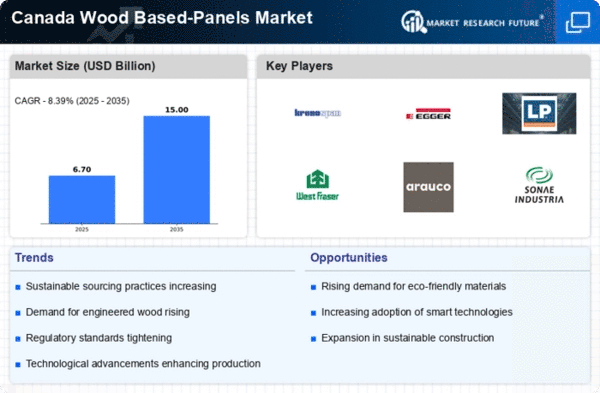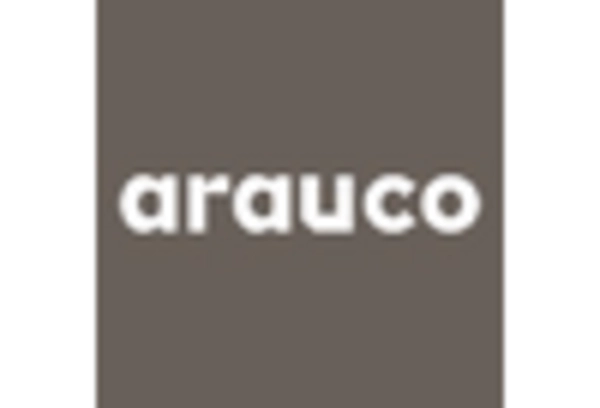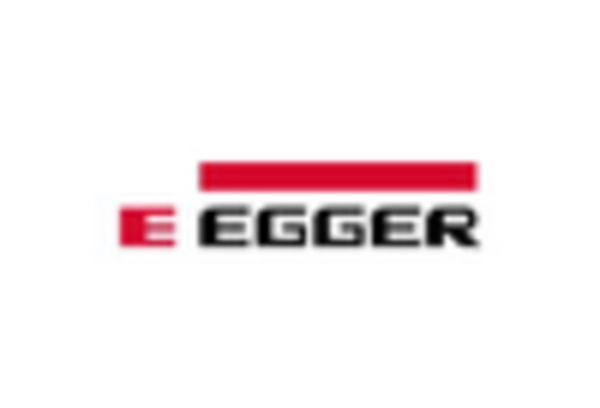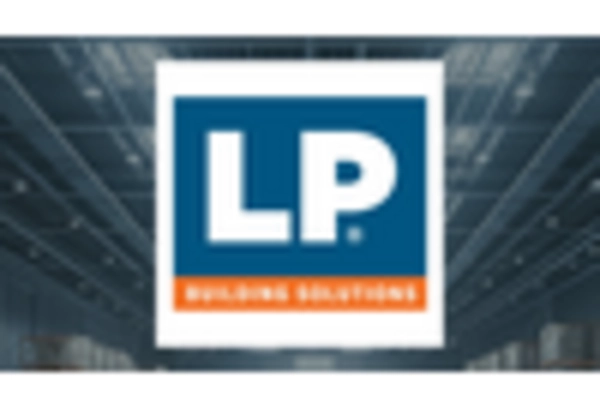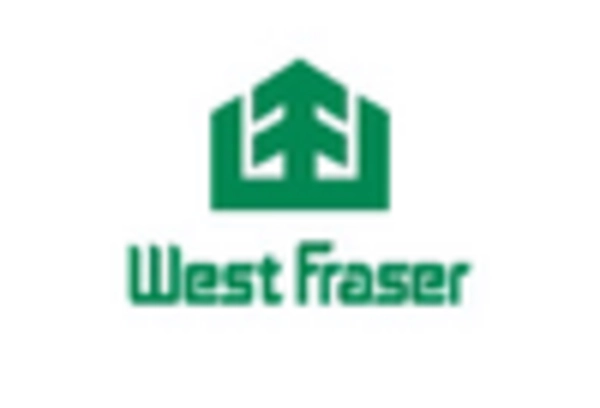Urbanization and Housing Demand
The ongoing trend of urbanization in Canada is significantly influencing the wood based-panels market. As more individuals migrate to urban areas, the demand for housing and commercial spaces is escalating. This surge in construction activity is expected to drive the wood based-panels market, with projections indicating a growth rate of 10% annually over the next five years. The wood based-panels market is well-positioned to capitalize on this trend, as these materials are favored for their versatility and cost-effectiveness in construction. Consequently, manufacturers are likely to increase production to meet the rising demand, further solidifying their presence in the market.
Government Regulations and Incentives
Government policies in Canada are increasingly favoring the use of sustainable materials, which significantly impacts the wood based-panels market. Regulations aimed at reducing carbon footprints and promoting green building practices are becoming more stringent. For instance, the Canadian government has introduced incentives for builders who utilize eco-friendly materials, including wood based-panels. These initiatives may lead to a projected growth of 15% in the market by 2026, as more construction projects adopt these materials to comply with new standards. The wood based-panels market is thus positioned to benefit from these regulatory frameworks, which not only encourage sustainable practices but also enhance the overall competitiveness of the sector.
Rising Demand for Eco-Friendly Products
The wood based-panels market in Canada is experiencing a notable increase in demand for eco-friendly products. This trend is largely driven by consumer preferences shifting towards sustainable materials. As environmental awareness grows, manufacturers are compelled to innovate and produce panels that meet these expectations. In 2025, it is estimated that the market for eco-friendly wood based-panels could account for approximately 30% of total sales. This shift not only aligns with consumer values but also encourages companies to adopt sustainable practices, thereby enhancing their market position. The wood based-panels market is thus likely to see a surge in products that utilize recycled materials and sustainable sourcing, which could further stimulate growth in this sector.
Technological Innovations in Manufacturing
Technological advancements in manufacturing processes are playing a crucial role in shaping the wood based-panels market. Innovations such as automated production lines and advanced adhesives are enhancing efficiency and product quality. In 2025, it is anticipated that the adoption of these technologies could reduce production costs by up to 20%, allowing manufacturers to offer competitive pricing. Furthermore, these innovations enable the production of panels with improved durability and performance characteristics, which are increasingly demanded by consumers. The wood based-panels market is thus likely to witness a transformation as companies invest in technology to meet evolving market needs and enhance their operational capabilities.
Increased Investment in Renovation Projects
There is a growing trend in Canada towards home renovations, which is positively impacting the wood based-panels market. Homeowners are increasingly investing in upgrades to improve aesthetics and energy efficiency. This trend is projected to contribute to a 12% increase in the demand for wood based-panels over the next few years. The wood based-panels market is likely to benefit from this renovation boom, as these materials are often used in various applications, including cabinetry, flooring, and wall paneling. As consumers prioritize quality and sustainability in their renovation choices, manufacturers may need to adapt their offerings to align with these preferences, thereby enhancing their market competitiveness.


